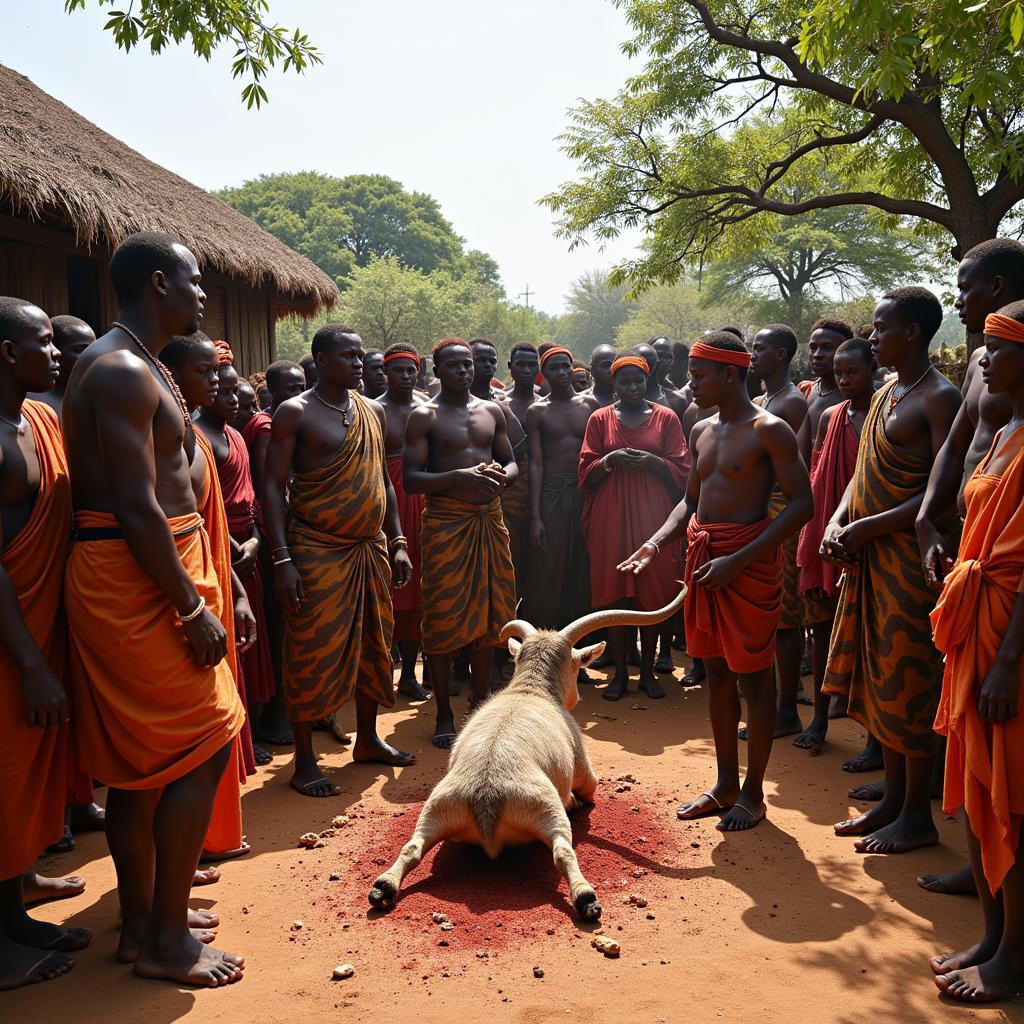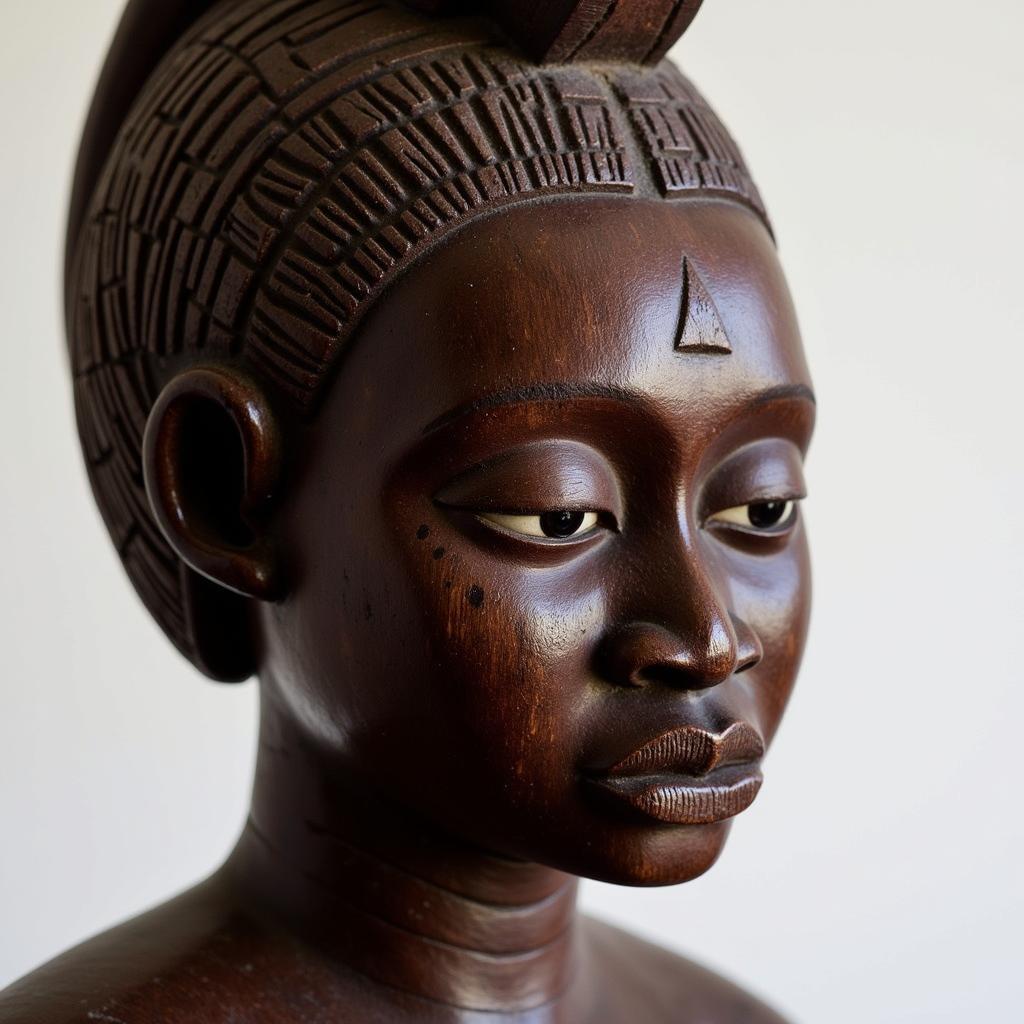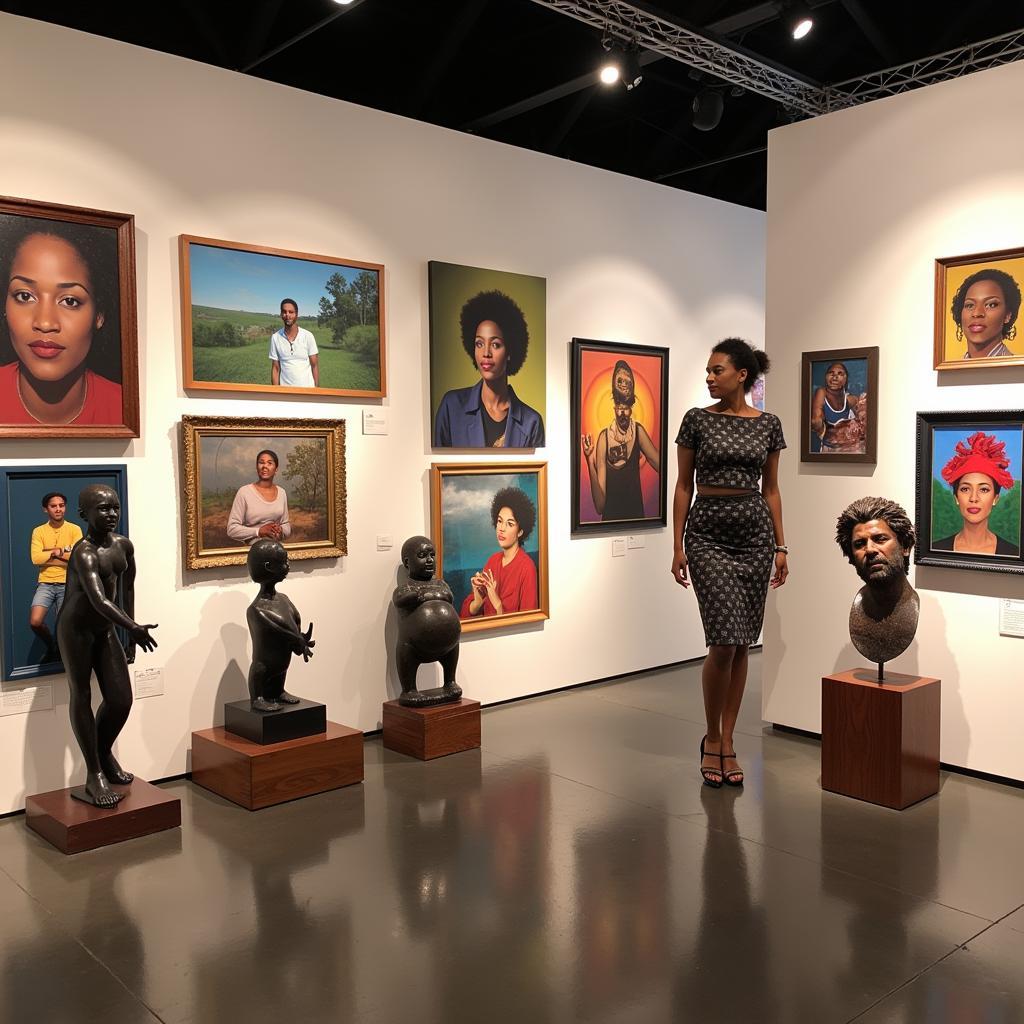Unveiling African Blood Rituals: Myths and Realities
African Blood Rituals, a topic often shrouded in mystery and misconception, have captured the imagination of many. This article delves into the historical and cultural context surrounding these practices, separating fact from fiction and exploring their significance within various African communities. We’ll examine the diverse nature of these rituals, addressing common questions and shedding light on their true meaning. After reading through this piece, you’ll have a deeper understanding of African blood rituals and their place in the rich tapestry of African culture.
Exploring the History of African Blood Rituals
Throughout history, many cultures around the world, including some in Africa, have incorporated symbolic uses of blood in rituals. It’s important to note that these practices vary significantly across different regions and ethnic groups within the vast continent of Africa. Some rituals involve animal sacrifice, while others may utilize symbolic substitutes like red ochre or other pigments. The historical context of these rituals is crucial to understanding their purpose and significance. They are often rooted in ancient beliefs about life, death, and the spiritual world.
For some communities, blood symbolizes life force and vitality. Rituals involving blood may be performed to appease ancestors, ensure a successful harvest, or mark important life transitions like birth, puberty, or marriage. It is crucial to approach the topic with sensitivity and respect, acknowledging the cultural significance of these practices within their specific contexts. Misunderstandings and misinterpretations can arise from a lack of cultural understanding. Learning about African American social values can also provide valuable insights into the diverse perspectives on tradition and ritual.
 African Blood Rituals: Animal Sacrifice in Traditional Ceremonies
African Blood Rituals: Animal Sacrifice in Traditional Ceremonies
Types of African Blood Rituals and Their Significance
African blood rituals are not monolithic; they encompass a wide range of practices with diverse purposes and symbolism. Some rituals focus on healing and protection, invoking spiritual forces to ward off illness or misfortune. Others are connected to agricultural cycles, seeking to ensure fertile land and abundant harvests. Understanding these various types of rituals requires examining the specific beliefs and traditions of the communities that practice them. For instance, some rituals involve the symbolic sharing of blood between individuals, representing a bond of kinship or community.
In many communities, the rituals are conducted by trained specialists, often spiritual leaders or elders who hold a deep understanding of the tradition. These rituals are often accompanied by prayers, chants, and specific symbolic actions, adding to their spiritual significance. It is also important to remember that African traditions are dynamic and constantly evolving, adapting to changing circumstances while retaining their core values.
Debunking Myths Surrounding African Blood Rituals
Misconceptions about African blood rituals often stem from sensationalized portrayals in media and a lack of accurate information. It is essential to separate fact from fiction and approach this topic with a critical eye. One common misconception is the generalization of these practices across the entire continent. Africa is incredibly diverse, with countless ethnic groups and traditions. What might be true for one community may not apply to another. Another misconception is the association of blood rituals with dark magic or malevolent practices. In reality, most of these rituals are rooted in spiritual beliefs and intended for positive purposes such as healing, protection, or community bonding. Learning about different African cichlid varieties can be a good starting point to understand the incredible biodiversity and cultural richness of the continent.
Dr. Abena Osei, a renowned anthropologist specializing in African cultures, emphasizes, “The portrayal of African blood rituals often lacks nuance and understanding. These rituals are complex and deeply embedded within specific cultural contexts, and they should be studied and interpreted with respect and sensitivity.”
Conclusion: Understanding the Complexity of African Blood Rituals
African blood rituals are a complex and fascinating aspect of the continent’s diverse cultural landscape. Understanding these rituals requires careful consideration of their historical context, symbolic meanings, and the specific beliefs of the communities that practice them. It’s crucial to avoid generalizations and approach the topic with respect and sensitivity. By separating fact from fiction, we can appreciate the rich tapestry of African traditions and gain a deeper understanding of the human experience. Remember, exploring the complexities of [African blood rituals] requires continuous learning and open-mindedness.
FAQ
-
Are all African blood rituals the same? No, they vary greatly across different cultures and communities.
-
Are African blood rituals always about sacrifice? No, some involve symbolic substitutes like red ochre.
-
What is the purpose of these rituals? Purposes include healing, protection, marking life events, and agricultural fertility.
-
Are these rituals harmful? While some may involve animal sacrifice, the vast majority are not intended to cause harm.
-
Where can I learn more about specific rituals? Further research into specific ethnic groups and their traditions is recommended.
-
How are blood lily bulbs relevant to these rituals? You can find information about African blood lily bulb separately.
-
Are there any free resources available for researching African culture? You could explore resources like African drums mp3 free or explore specific websites on African art and culture.
Other Questions and Related Articles
You might also be interested in learning about the diverse African dwarf cichlids species.
We encourage you to explore further and delve into the specific traditions of different African communities.
Need help? Contact us 24/7: Phone: +255768904061, Email: kaka.mag@gmail.com, Address: Mbarali DC Mawindi, Kangaga, Tanzania.

